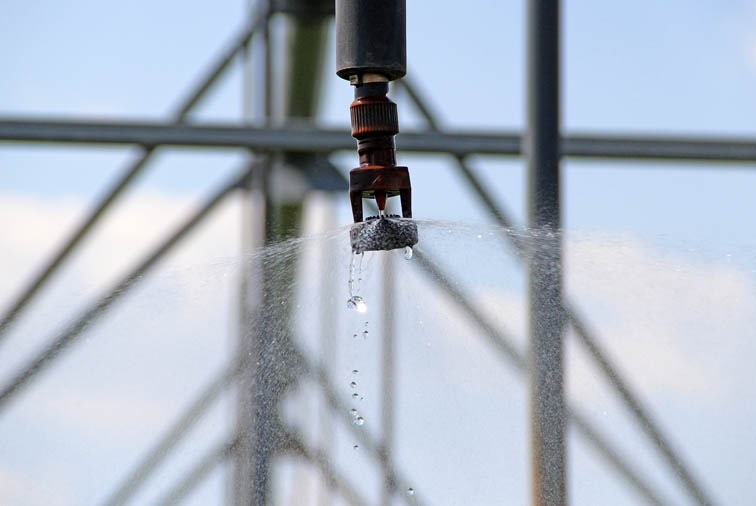
While it comes as no surprise, farmers and community leaders in the Lower Colorado River Basin are struggling with the news that they face yet another year without irrigation water from the Colorado River.
The Lower Colorado River Authority (LCRA) Board of Directors voted 11 to 2 this week to ask permission from the Texas Commission on Environmental Quality (TCEQ) to curtail releases from the lakes once again in 2015. LCRA's request is identical to the one requested and granted by the state for 2014, which cut off releases of interruptible water supplies for most downstream irrigation, including Texas rice growers in the lower basin.
This year's emergency request comes with a new twist to the usual story. The latest request to the Texas Commission on Environmental Quality also seeks to reduce downstream water releases for the blue sucker, a state-listed threatened species of fish.
For the latest on southwest agriculture, please check out Southwest Farm Press Daily and receive the latest news right to your inbox.
"This was not an easy decision, but we must protect the region’s water supply," LCRA General Manager Phil Wilson told the board Wednesday. "More than a million people depend on water from the Highland Lakes, and right now, there is just not enough water for everyone to have all they want."
The board will also continue limiting outdoor watering by LCRA firm customers and their customers to a maximum of one day a week in an effort to conserve water in 2015. Firm customers include cities in Central Texas that depend on water from the Highland Lakes.
In response to LCRA's action Wednesday, the Lower Colorado River Basin Coalition (LCRBC) released a statement acknowledging the need for the unprecedented request by LCRA to cut off most irrigation water for a fourth straight year. But the Coalition also called for increased water conservation and drought contingency measures to help stretch water supplies.
Grave risks downstream
"While this is certainly expected with the ongoing serious drought and low lake levels, the request continues to pose grave risks for the sustainability of businesses, communities, agriculture, waterfowl, fish and the environment throughout the downstream Colorado River basin," said Kirby Brown, co-chair of the Coalition and biologist with Ducks Unlimited.
Brown said curtailing river water from downstream interests has presented a number of hardships on agriculture, communities who depend on the river to attract recreational users, and to wildlife in the lower basin.
"Downstream interests have borne the brunt of the drought for the past four years and we believe the sacrifices should be more evenly shared up and down the basin," added Brown.
Wilson said the board decision to seek relief for a record fourth straight year comes on the heels of some of the lowest amounts of water flowing into the lakes from streams and tributaries since the Highland Lakes were formed in the 1930s through the early 1950s. He says January to October inflows were the second lowest for that 10-month period since 1942. The monthly inflows were the third lowest on record for October.
With this vote, the LCRA Board again is asking to deviate from the existing state-approved Water Management Plan, which determines how water from lakes Travis and Buchanan, the region’s water supply reservoirs, is managed.
Without the state’s permission to deviate from the requirements of the plan, LCRA would be obligated to provide about 170,000 acre-feet of interruptible stored water from the lakes for agricultural purposes in 2015. (An acre-foot of water is 325,851 gallons.)
Although LCRA recently filed a revised request with TCEQ to amend the Water Management Plan, these changes are not likely to be in effect in time to affect release decisions for 2015.
Wilson says with combined storage in lakes Travis and Buchanan at about 674,000 acre-feet, or 33 percent of capacity, "the board determined there is not enough water available to meet all requests and still protect the region’s water supply."
Call for conservation
Brown said the Coalition believes mandatory water restrictions should be imposed on all LCRA customers if some are going to have their water cut off, and he argues that water conservation needs to be more aggressive and systematic.
"What’s at stake is a way of life in communities below Longhorn Dam in Austin," said County Judge Paul Pape of Bastrop County. "Many families have been ranching, farming and fishing for generations. Reliable water is essential to sustain the lower river and all it supports."
Myron Hess, who manages Texas water programs for the National Wildlife Federation, said the reductions in spawning season releases for the blue sucker likely are justified because of the seriousness of the ongoing drought.
"But it is time to put into place a more comprehensive flow regime for the Colorado River that reflects the latest science. The reduced flows reflect only one part of the recommendations from a 2008 LCRA study," Hess reports.
This new LCRA request would, if approved, suspend releases from the Highland Lakes for most downstream agriculture users in 2015. However, even if TCEQ grants LCRA’s request, customers in the Garwood Irrigation Division still may be entitled to limited amounts of water because of an existing contract with LCRA.
The Coalition is advocating for other measures to cope with drought, besides prohibiting the movement of water downstream, including more efficient use of water on an ongoing, basin-wide basis; a robust set of enforceable drought contingency measures; management of proposed off-channel reservoirs to benefit downstream businesses, industries, agriculture and the environment; river management based on sustainability for people, commerce and the environment.
LCRA's request must now go to the TCEQ executive board for review and consideration.
About the Author(s)
You May Also Like




